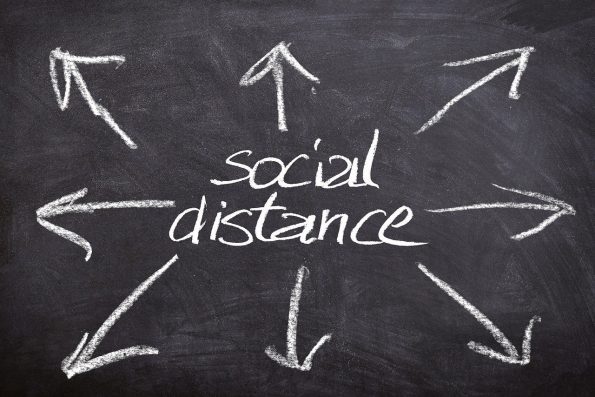Returning to Work Post COVID-19
Most of American workers are worried right now they could get infected at work and could expose their families to COVID-19. Here are a few things you can check to make sure it’s safe to go back to work in the middle of the greatest pandemic in modern history. A safe workplace is critical to your business survival.
Check: Implementation of Social Distancing Regulations
The coronavirus gets sprayed in the air when an infected person coughs or sneezes. The virus can infect people who are present within a 2 meter or 6 feet radius of that person. A minimum social distance of 6 feet should therefore be maintained to stop COVID-19 from spreading.
A hygienic and safe workplace should have arrangements in place to ensure that the social distancing minimum is not breached at any time during work. To comply with the regulation, some businesses are redesigning their offices
or renting more space. Others are scheduling employees to work in shifts or work from home. What is your office doing?
Check: Minimizing the Use of Common Touch Surfaces
Shared surfaces were a common sight around offices before COVID-19. Office entry keypads, fingerprint scanners, public touchscreen displays, vending machine buttons, computer keyboards, printers, and door handles are a few examples of common touch surfaces. The corona virus has made it unsafe to use shared surfaces or equipment.
The virus can survive on most materials for several hours. It can stick to the hands of a person touching that surface and can infect them when they touch their nose, mouth or eyes. Health conscious employers are replacing outdated contact based office entry systems with face recognition based touchless access control systems to minimize the risk to workers health.
Check: Cleaning and Disinfecting Procedures
The virus can lodge on surfaces such as desks or floors when atomized droplets from coughing or sneezing fall on those surfaces. WHO and CDC recommend routine cleaning of all surfaces with soap and detergent. The section of the office where an infected person has been working must be cordoned off and disinfected with EPA approved disinfectants before it is opened for other employees. Hand sanitizer dispensers and hand washing points should be made accessible for all employees.
A shared, safe workplace needs to have rigorous cleaning routines in place to wipe down common touch surfaces after every use using disposable wipes and disinfectant surfaces. The number of shared equipment and tools should be reduced. And workers should be asked to clean them before and after use.
Check: Promote Remote Working
WHO recommends that employers should encourage employees to work from home. Working remotely can slow down the spread of pandemic and make it easier to follow the social distancing regulations.
Compliant employers are enabling more of their people to work from home by providing computers, furniture, secure internet, and remote working software tools. Many employers have already worked out the changes in business processes required to promote remote working. Others are catching up fast.
Check: Daily Health Screening
According to the latest guidelines issued by CDC, employers should conduct daily health checks of employees to screen them for fever and other COVID-19 symptoms. The check can be conducted in-person or remotely. In-person health checks are time consuming and risky. They must be conducted while ensuring safety precautions like wearing of masks or using barriers or protective screens.
The health check can also be conducted remotely through infrared sensors embedded with a face-recognition based access control system. Remote health checks
are a much safer way of screening and do not result in long queues at the entry. Touchless access control also enables Security and HR teams to keep temperature records, allocate PPE, plan capacity, implement staggered schedules, and make safety announcements.
The Way Forward
With the ‘Great Pause’ coming to its logical conclusion, responsible employers are doing everything they can to make a safe workplace for everyone. Individuals can play their role by complying with the regulations—maintaining social distance, washing or sanitizing hands frequently, staying home when they are sick—and by asking their employers to address the health and safety lapses they notice around the workplace.


